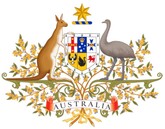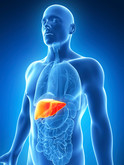Biosimilars
Guiding principles for biosimilars development
In contrast to chemically synthesized small-molecule drugs, biologicals have complex structures of high molecular weight. Therefore, even small changes in the production processes may lead to differences in the final product. The manufacturers of the originator product are not required to disclose their manufacturing process after the patent expiry. This gap in knowledge increases the probability of introducing changes in the manufacturing process of biosimilars, making producing an identical copy of a biological virtually impossible. Indeed, even different batches of the same originator biological may show a certain level of heterogeneity.
Biosimilars approved in Australia
Last update: 6 May 2025
In Australia, the legal framework for approving medicines was established via the Therapeutic Goods Act 1989.
Use of formularies could increase use of biosimilars
Whether or not the US Food and Drug Administration (FDA) permits automatic substitution of biosimilars, healthcare systems can still consider using formularies as a way to increase the use of more affordable biosimilars [1].
Roche wins case against Herceptin ‘similar biologics’ producers
Generic drugmaker Mylan and its partner Biocon have been successfully sued by Roche for failing to carry out sufficient clinical trials on ‘similar biologics’ of the breast cancer blockbuster Herceptin (trastuzumab). Mylan and Biocon had recently announced plans to launch their ‘similar biologics’ in India [1, 2].
Teva gains FDA approval for three-times-a-week Copaxone
Teva Pharmaceutical Industries (Teva) announced on 28 January 2013 the generics giant had gained US Food and Drug Administration (FDA) for a new formulation of its blockbuster multiple sclerosis drug Copaxone (glatiramer acetate).
EMA approves follitropin alfa biosimilar
The European Medicines Agency’s (EMA’s) Committee for Medicinal Products for Human Use (CHMP) announced on 23 January 2014 that it had recommended the granting of a marketing authorization for biosimilar infertility treatment Bemfola (follitropin alfa).
The case for improving biosimilar regulatory frameworks worldwide
In developing countries, where the cost benefits of biosimilar drugs would have the greatest impact, the financial investment needed to develop biosimilars renders them inaccessible. The situation requires increased input from international evaluation frameworks, such as those of the World Health Organization (WHO); write Barbara Milani and Sara Gaspani of Médecins Sans Frontières, Geneva, Switzerland [1].
Mylan launches trastuzumab ‘similar biologic’ in India
Generics giant Mylan announced on 3 February 2014 that its subsidiary, Mylan Pharmaceuticals Private Limited, had launched its trastuzumab ‘similar biologic’ Hertraz to the Indian market.
Epirus and Ranbaxy sign agreement for infliximab 'similar biologic'
Epirus Switzerland, a subsidiary of US-based Epirus Biopharmaceuticals, and India-based Ranbaxy Laboratories (Ranbaxy) announced on 9 January 2013 that the two companies had signed a licensing agreement for BOW015, an infliximab biosimilar.
Improving access to HCV treatment in developing countries
Hepatitis C virus (HCV) infection affects 150–180 million people worldwide each year, killing an estimated 350,000. The considerable cost of treatment – US$ 10,000–US$20,000 per patient for a 48-week course – presents an insurmountable barrier in developing countries, where the disease burden is greatest. Barbara Milani and Sara Gaspani of Médecins Sans Frontières, Geneva, Switzerland, have collected information on biosimilars and other alternatives to the current recommended treatment, pegylated interferon alpha (in combination with ribavirin) [1]. With these findings, they hope to accelerate the search for feasible, accessible alternatives to current therapies.













